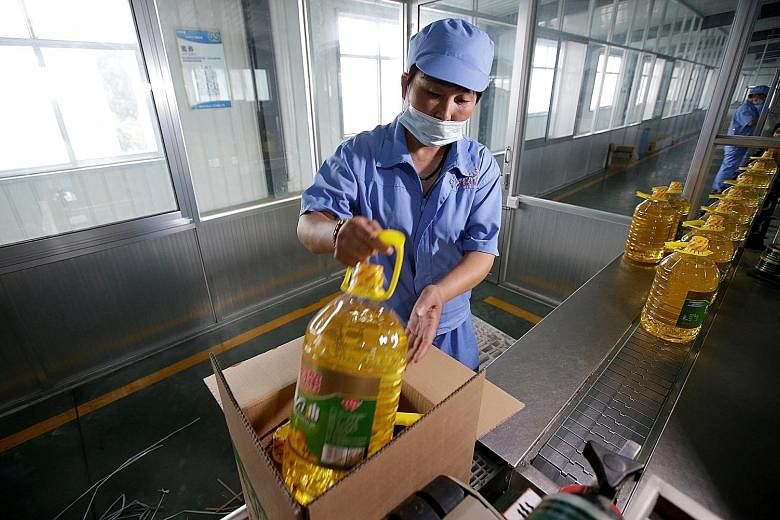BEIJING • China yesterday said it had taken "reciprocal" action against US diplomats in the country, ordering them to notify the Foreign Ministry before meeting local officials.
Foreign Ministry spokesman Hua Chunying said China had notified the US Embassy of the new measures on Wednesday, which she said were a "countermeasure" to Washington's decision in October to restrict Chinese diplomats.
"We once again urge the US side to correct its mistakes and revoke the relevant rules," she said.
In October, the US ordered Chinese diplomats to notify the State Department in advance of any official meetings with US diplomats, local or municipal officials, and before any visits to colleges or research institutions.
At the time, Washington called the move "reciprocal", with a senior State Department official citing the inability of US diplomats to meet a range of Chinese officials and academics.
Yesterday, Ms Hua said US diplomats must notify the ministry five working days in advance, and that China would respond "according to the US' practice". The US Embassy in Beijing did not comment.
The tit-for-tat restrictions come amid a trade war between the world's two largest economies and as tensions between Washington and Beijing spike over human rights issues.
Last week, US President Donald Trump signed a law that supported pro-democracy protests in Hong Kong, which has been rocked by nearly six months of often violent unrest demanding greater autonomy - which Beijing has blamed on foreign influence.
But in a sign that a trade deal could still be inked, China said yesterday it will offer a tariff waiver to "some" imports of US soya bean and pork. The olive branch comes at a time when the two sides are edging towards a partial deal that includes a China promise to buy more US farm produce.
The Chinese Finance Ministry said in a statement: "The Customs Tariff Commission of the State Council is carrying out the exclusion of some soya bean, pork and other commodities based on applications from enterprises."
Chinese companies have already "independently imported certain quantities of goods from the United States", the statement said.
Beijing has increased tariffs on US pork three times since the trade war started in March last year, raising the total duty from 12 per cent to 72 per cent as of September. The tariff on soya bean has gone up from 3 per cent to 33 per cent, after two rounds of tariffs - 25 per cent in July last year and another 5 per cent in September.

